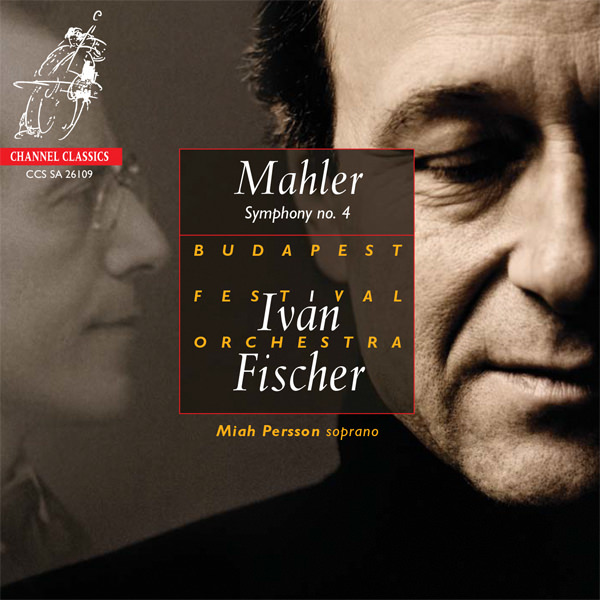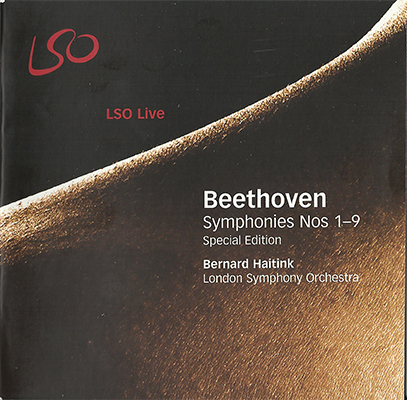
Gustav Mahler – Symphony No. 5 – Miah Persson, Budapest Festival Orchestra, Ivan Fischer (2013)
DSF Stereo DSD64/2.82MHz | Time – 01:14:12 minutes | 2,93 GB | Genre: Classical
Official Digital Download – Source: nativeDSDmusic | Digital Booklet | © Channel Classics Records B.V.
Recorded: Palace of Arts, Budapest, Hungary, September 2012
The Fifth is the most Jewish of all Mahler’s symphonies. The first movement takes usto the unmistakable mood of Jewish lamentation, the finale to the childlike visionof messianic joy.As we know, Mahler converted to Catholicism. Views may differ as to whether hisdecision was opportunistic or a question of religious conviction. Christianity plays animportant part in much of Mahler’s music, though not in this particular work.Perhaps I may take the liberty of referring briefly to my own family. My ancestors(like Mahler’s) were merchants in a small shtetl in the Habsburg Empire. They wereobservant Jews. My grandfather, three years older than Gustav Mahler, decided toleave this religious lifestyle behind him when he went to study in Vienna. My fatherand his brothers were brought up without any religious education. They adoredGoethe, Mozart, Beethoven and Richard Wagner. One of the four brothers convertedto Catholicism when he married a daughter of a converted family. Later, underNazi occupation, when it seemed for a while that converting might help them avoiddeportation, two of my uncles and an aunt became Catholics; the other members of thefamily did not.Whether or not these decisions were opportunistic was never discussed in myfamily. Nobody cared – these were considered unimportant, personal decisions, partlydictated by circumstances. Converts or no converts, nobody practised any religion andeverybody adored culture. And they all hummed tunes like those in Mahler’s FifthSymphony. -Iván Fischer
This is, I think, the fifth Mahler symphony recording from Iván Fischer and the Budapest Festival Orchestra so it looks as if a cycle is evolving. Reviews of previous issues are listed at the foot of this review. This is the first of these Mahler performances that I’ve heard and I believe the team have also recorded the Sixth.
There’s much to admire here: the orchestral playing is top-class and the excellent recording reports the sound of the orchestra with great clarity. I see that in reviewing the Second Symphony Michael Greenhalgh commented on Fischer’s attention to detail. That trait is in evidence here as well. A satisfying amount of Mahler’s polyphonic writing is clearly audible without any artificial highlighting.
In a note in the booklet, the conductor describes the Fifth as Mahler’s ‘most Jewish’ symphony. In support of this contention he mentions particularly the first and last movements. We’ll come to the finale in due course, but speaking of the first movement Fischer refers to ‘the unmistakeable mood of Jewish lamentation’. That’s an interesting observation though I’m not sure just how vividly the lamentation comes across. Fischer’s view of the movement doesn’t grab the listener by the throat in the manner of, say, Bernstein (review) or Tennstedt (review). However, it’s a convincing reading. The pacing is intelligent and there’s excellent, though not overdone, weight in the orchestral sound. Fischer doesn’t overplay his hand in this movement and that approach brings its own rewards. I’ve heard more turbulent accounts of the second movement – Fischer’s reading is not as scalding and highly charged as either Bernstein or Tennstedt are at times – but the movement ‘works’ in his hands.
The first time I played the central scherzo I thought that the core tempo was a bit on the steady side; some conductors take it more quickly. However, any relative steadiness is only a matter of degree. I became convinced, above all, perhaps, because the Budapest players articulate the rhythms crisply. I enjoyed this nicely nuanced reading which benefits from some acute and tangy playing. I can’t see that the principal horn player is named in the booklet: he should be, because he plays his vital part splendidly.
Over the years we’ve experienced on disc quite a wide variety of approaches to the tempo of the famous Adagietto. Some conductors – Bernstein and Tennstedt among them – opt for a very expansive treatment of the music while others move it on at a more flowing, less sentimental pace. I’ve come to prefer the latter approach, not least because it rids us of those dreadful Death in Venice associations. Fischer takes 10:42, which puts him among the more expansive interpreters of this movement – though he’s by no means the slowest. Even so, I didn’t feel that the music sounded unduly slow. Fischer phrases it well and his string players – and the harpist – play it quite beautifully.
I mentioned earlier Fischer’s view of the “Jewishness” of this symphony. He describes the finale as ‘the childlike vision of messianic joy’. I don’t think I’d go that far but the movement is one of the happiest, most extrovert movements in Mahler’s output. Here it’s played with great spirit and virtuosity. I like the fact that when the chorale that we first glimpsed in the second movement comes back as the crowning moment (14:27) Fischer makes it sound exultant yet, by maintaining his tempo, he avoids any overblown rhetoric.
I enjoyed this performance of the Fifth. I don’t think it displaces Barshai (review), Barbirolli (review), Bernstein or Tennstedt in my personal pantheon of great Fifths – and all those readings bring different perspectives on this score. It still offers much to the listener and I’m sure I will be listening to it with pleasure in the future. -John Quinn, MusicWeb International
Tracklist:
Gustav Mahler (1860-1911)
Symphony No. 5 in C-Sharp Minor (1902)
1. I. Trauermarsch. In gemessenem Schritt. Streng. Wie ein Kondukt 13.00
2. II. Stürmisch bewegt, mit größter Vehemenz 15.09
3. III. Scherzo. Kräftig, nicht zu schnell 19.39
4. IV. Adagietto. Sehr langsam 10.42
5. V. Rondo-Finale. Allegro – Allegro giocoso. Frisch 15.42
Personnel:
Budapest Festival Orchestra
Iván Fischer, conductor
Download:
mqs.link_MahlerSymphnyN.5BudapestFestivalrchestraIvnFischer2013nativeDSDmusicDSD64.part1.rar
mqs.link_MahlerSymphnyN.5BudapestFestivalrchestraIvnFischer2013nativeDSDmusicDSD64.part2.rar
mqs.link_MahlerSymphnyN.5BudapestFestivalrchestraIvnFischer2013nativeDSDmusicDSD64.part3.rar
mqs.link_MahlerSymphnyN.5BudapestFestivalrchestraIvnFischer2013nativeDSDmusicDSD64.part4.rar




















![Miah Persson, Budapest Festival Orchestra, Ivan Fischer - Mahler: Symphony No. 4 (2009) [nativeDSDmusic DSF DSD64/2.82MHz] Miah Persson, Budapest Festival Orchestra, Ivan Fischer - Mahler: Symphony No. 4 (2009) [nativeDSDmusic DSF DSD64/2.82MHz]](https://getimg.link/images/imgimgimg/uploads/2018/11/DRd52Ah.jpg)
![Michael Tilson Thomas, The San Francisco Symphony - The Mahler Project (2010) [FLAC 24bit/96kHz] Michael Tilson Thomas, The San Francisco Symphony - The Mahler Project (2010) [FLAC 24bit/96kHz]](https://getimg.link/images/imgimgimg/uploads/2017/01/HHDTsz0.jpg)
![Sir Simon Rattle, Berliner Philharmoniker - Jean Sibelius - Symphonies Nos. 1-7 (2015) [Blu-ray Disc + Pure Audio Blu-ray Disc + FLAC 5.1 24bit/192kHz] Sir Simon Rattle, Berliner Philharmoniker - Jean Sibelius - Symphonies Nos. 1-7 (2015) [Blu-ray Disc + Pure Audio Blu-ray Disc + FLAC 5.1 24bit/192kHz]](https://getimg.link/images/imgimgimg/uploads/2016/02/htbd2jO.jpg)
![Mahler: Symphony no 2 "Resurrection" - Persson, Connolly, Zander (2013 [LINN FLAC 24bit/192kHz] Mahler: Symphony no 2 "Resurrection" - Persson, Connolly, Zander (2013 [LINN FLAC 24bit/192kHz]](https://getimg.link/images/imgimgimg/uploads/2017/07/JlsbsrQ.jpg)
![Carl Nielsen - Symphonies Nos. 1-6 - London Symphony Orchestra, Sir Colin Davis (2015) [Blu-Ray Pure Audio Disc + DSF Stereo DSD64/2.82MHz] Carl Nielsen - Symphonies Nos. 1-6 - London Symphony Orchestra, Sir Colin Davis (2015) [Blu-Ray Pure Audio Disc + DSF Stereo DSD64/2.82MHz]](https://getimg.link/images/imgimgimg/uploads/2015/09/Wnf48VE.jpg)

![Budapest Festival Orchestra, Ivan Fischer - Bruckner: Symphony No. 7 (2014) [DSF DSD64/2.82MHz] Budapest Festival Orchestra, Ivan Fischer - Bruckner: Symphony No. 7 (2014) [DSF DSD64/2.82MHz]](https://getimg.link/images/imgimgimg/uploads/2018/08/sGmvwYb.jpg)
![Miah Persson - Sempre Libera (2015) [MCH SACD ISO + DSF DSD64 + Hi-Res FLAC] Miah Persson - Sempre Libera (2015) [MCH SACD ISO + DSF DSD64 + Hi-Res FLAC]](https://imghd.xyz/images/2024/08/22/9b8b4fb4ba5a42949f54d23885aa086e-9931866938006522171.webp)
![Budapest Festival Orchestra, Ivan Fischer - Mahler: Symphony No. 6 (2006) [nativeDSDmusic DSF DSD64/2.82MHz] Budapest Festival Orchestra, Ivan Fischer - Mahler: Symphony No. 6 (2006) [nativeDSDmusic DSF DSD64/2.82MHz]](https://getimg.link/images/imgimgimg/uploads/2018/11/E2Qio7s.jpg)
![Budapest Festival Orchestra, Ivan Fischer - Beethoven: Symphony Nos. 4 & 6 (2010) [SACD DSF DSD64/2.82MHz] Budapest Festival Orchestra, Ivan Fischer - Beethoven: Symphony Nos. 4 & 6 (2010) [SACD DSF DSD64/2.82MHz]](https://getimg.link/images/imgimgimg/uploads/2018/01/RXiASRq.jpg)
![Budapest Festival Orchestra, Ivan Fischer - Brahms: Symphony no. 2 (2014) [nativeDSDmusic DSF DSD64/2.82MHz] Budapest Festival Orchestra, Ivan Fischer - Brahms: Symphony no. 2 (2014) [nativeDSDmusic DSF DSD64/2.82MHz]](https://getimg.link/images/imgimgimg/uploads/2018/12/RIfeSaY.jpg)
![Johannes Brahms - Symphony No. 4; Hungarian Dances 3, 7 & 11 - Budapest Festival Orchestra, Ivan Fischer (2015) [nativeDSDMusic DSF DSD64/2.82MHz] Johannes Brahms - Symphony No. 4; Hungarian Dances 3, 7 & 11 - Budapest Festival Orchestra, Ivan Fischer (2015) [nativeDSDMusic DSF DSD64/2.82MHz]](https://getimg.link/images/imgimgimg/uploads/2016/11/0csTmr5.jpg)
![Budapest Festival Orchestra, Ivan Fischer - Mahler: Symphony No. 1 ‘Titan’ (2012) [nativeDSDmusic DSF DSD64/2.82MHz] Budapest Festival Orchestra, Ivan Fischer - Mahler: Symphony No. 1 ‘Titan’ (2012) [nativeDSDmusic DSF DSD64/2.82MHz]](https://getimg.link/images/imgimgimg/uploads/2018/03/ruKQdae.jpg)
![Budapest Festival Orchestra, Ivan Fischer - Dvorak: Symphony No. 7 & American Suite (2010) [nativeDSDmusic DSF DSD64/2.82MHz] Budapest Festival Orchestra, Ivan Fischer - Dvorak: Symphony No. 7 & American Suite (2010) [nativeDSDmusic DSF DSD64/2.82MHz]](https://getimg.link/images/imgimgimg/uploads/2018/02/g8s5m8G.jpg)
![Pieter Wispelwey, Budapest Festival Orchestra, Ivan Fischer - Dvorak: Cello Concerto, Symphonic Variations (2007) [DSF DSD64/2.82MHz] Pieter Wispelwey, Budapest Festival Orchestra, Ivan Fischer - Dvorak: Cello Concerto, Symphonic Variations (2007) [DSF DSD64/2.82MHz]](https://getimg.link/images/imgimgimg/uploads/2018/12/r9YxUyW.jpg)